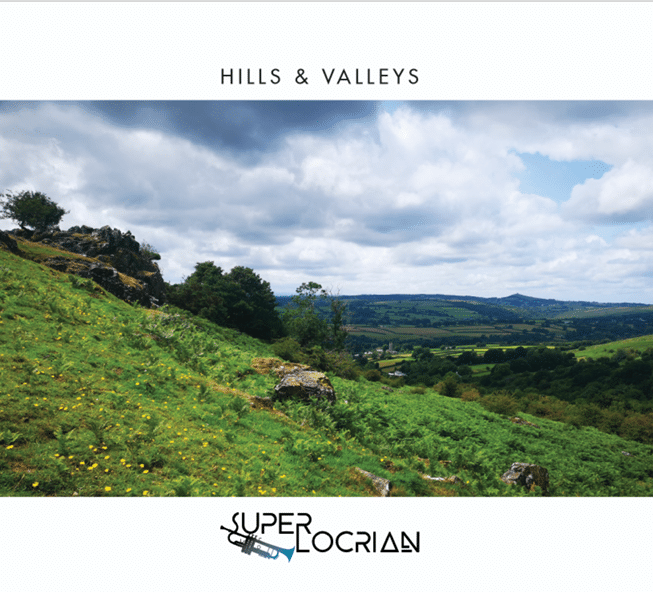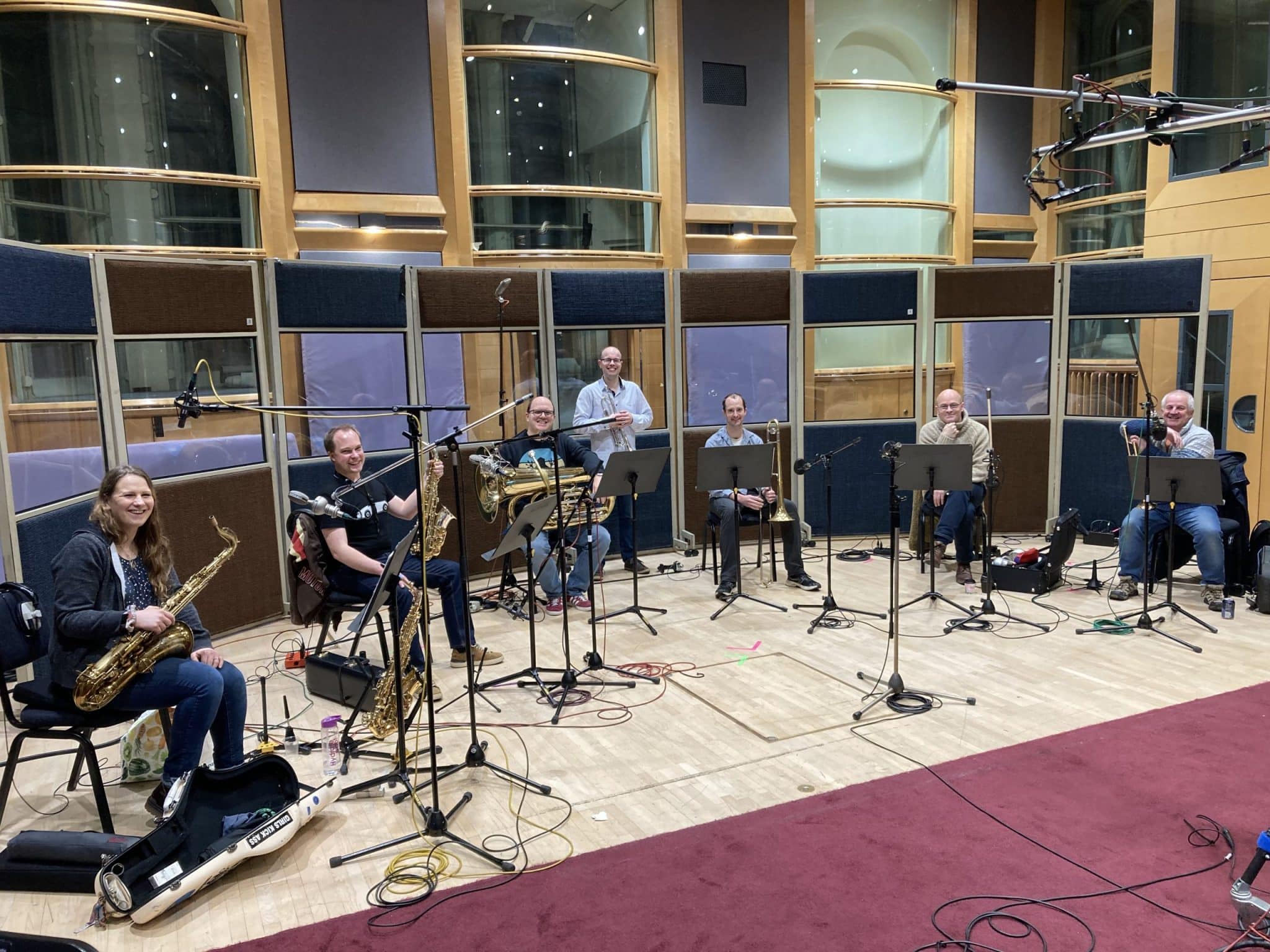Trumpeter/composer Sam Massey’s debut album with Superlocrian, Hills & Valleys, is released on 7 June. The album launch will take place on 5 June at Crazy Coqs, Brasserie Zédel on Piccadilly.
Superlocrian is an acoustic chamber-jazz septet featuring Gavin Mallett and Hugh Davies on trumpet and flugelhorn, Edward Leaker on soprano and alto saxophone, Jade Gall on saxophones and flutes, Tom Green on trombone and Mike Poyser on tuba. This unique wind septet configuration gives Superlocrian, in Massey’s words, “a distinctive sound that is both playful and sophisticated, lively and lyrical.” Interview by Graham Rickson.
UK Jazz News: Why is the group called Superlocrian?
Sam Massey: It’s not a typical jazz band with a front line that plays standards. There’s no percussion. We wanted a name that summed up that the group was a bit different. It’s a nod to jazz, a nod to modes, a nod to complex harmonies. It’s one word that grabs peoples’ interest, whether they know what it means, or sort of know what it means and have to look it up! The band is a bit left-field, and the name is too.
UKJN: The album tracks are full of intricate detail – how much of it is precisely notated?
SM: A lot of it is written down, but there’s space for improvisation in most of the pieces. If we take the first track, “Whitchurch Down”, my part is entirely improvised. Throughout the album, all the improvisers get space to do their thing.
UKJN: The two covers stand out in amongst the English pastoral numbers. “Hills & Valleys” ends, and you suddenly get Burt Bacharach’s “Close to You”.
SM: I can’t take any credit for the Bacharach – the arrangement was done by Callum Au, who’s my absolute inspiration when it comes to taking existing melodies and crafting something new with them. Our gigs are often at jazz festivals with a small ‘j’ (like Sidmouth), with artists who are at the poppier end of the spectrum. Audiences will say to us things like “I don’t normally like jazz, but I liked this.” We like to be able to do mixed programmes, combining the originals with standards.
UKJN: Did you always intend to become a jazz musician?
SM: I took a meandering approach to jazz. I studied music at Bristol University, but my teacher (Dean Wright) was at the Royal Welsh College of Music and Drama in Cardiff. I wasn’t on a jazz course, and Dean was a classical trumpeter, but I’d always played jazz. I’m from Totnes, and there’s a lot of it in that part of Devon. I did some improvising at school, but my big break came when Mike Westbrook moved back to Dawlish. He was setting up a big band in South Devon and needed a fourth trumpet. It was amazing, and completely different to anything I’d done before. It was eye-opening – I did some more studying with Nick Malcolm and spent a few years getting deeper into the idiom, especially into Mike’s music.
Eventually I realised that this was the direction I wanted to move in, though my classical background has left me with a good technical foundation – the arranging, composing and conducting, all of which have been so useful. The English pastoral influences which you can hear in the album come from my having played with Mike Westbrook and Keith Tippett.
I later explored the music of people like Mike Gibbs and Kenny Wheeler, whose sound world really appealed to me and has inspired my composing and playing. Hopefully people will hear that, particularly with “Ballad for Kenny”, where I had that Wheeler sound in my head. I’ve been lucky enough to play with Mike Westbrook for 15 years – he’s been a really good mentor from the days when I was a fourth trumpet who could barely play any of it, to me going on tour with him.

UKJN: You spend a lot of time working with young players. Are you a product of a state school music education?
SM: Absolutely. I grew up in Devon and was lucky enough to attend a secondary school with a performing arts specialism. There was a lot of money floating around and decent teachers who pushed me into music, and I now work part-time for the local music hub as a music development lead, setting up various projects. For example, Superlocrian had a lunchtime gig at the Sidmouth Jazz Festival yesterday, followed by a big two-hour workshop with a performance at the end. I like to tie things together, to give students the chance to try things that they wouldn’t normally experience.
UKJN: Do you enjoy the process of recording? Hills & Valleys has a very contented, amenable feel to it.
SM: We had a wonderful day. Being in Air Studios for ten hours was a dream come true, and we were well looked after. None of us are in the band to make our fortunes; we do it because we really like it, and had a busy but relaxed time. Producer John Prestage was phenomenal, keeping the whole process efficient but happy. John is a classically trained trumpet player with an idea of what brass instruments should sound like, and the album was mastered by Cicely Balston, a saxophonist who really opened up the sound of the woodwinds. We only had one day to do the recording, and everyone was playing all the time. We overdubbed solos during the breaks!
LIVE CONCERTS
5 June – SpiceJazz at Crazy Coqs, Brasserie Zédel (album launch – BOOKINGS)
7 September – Calstock Arts Centr
8 September – Teignmouth Jazz & Blues Club


